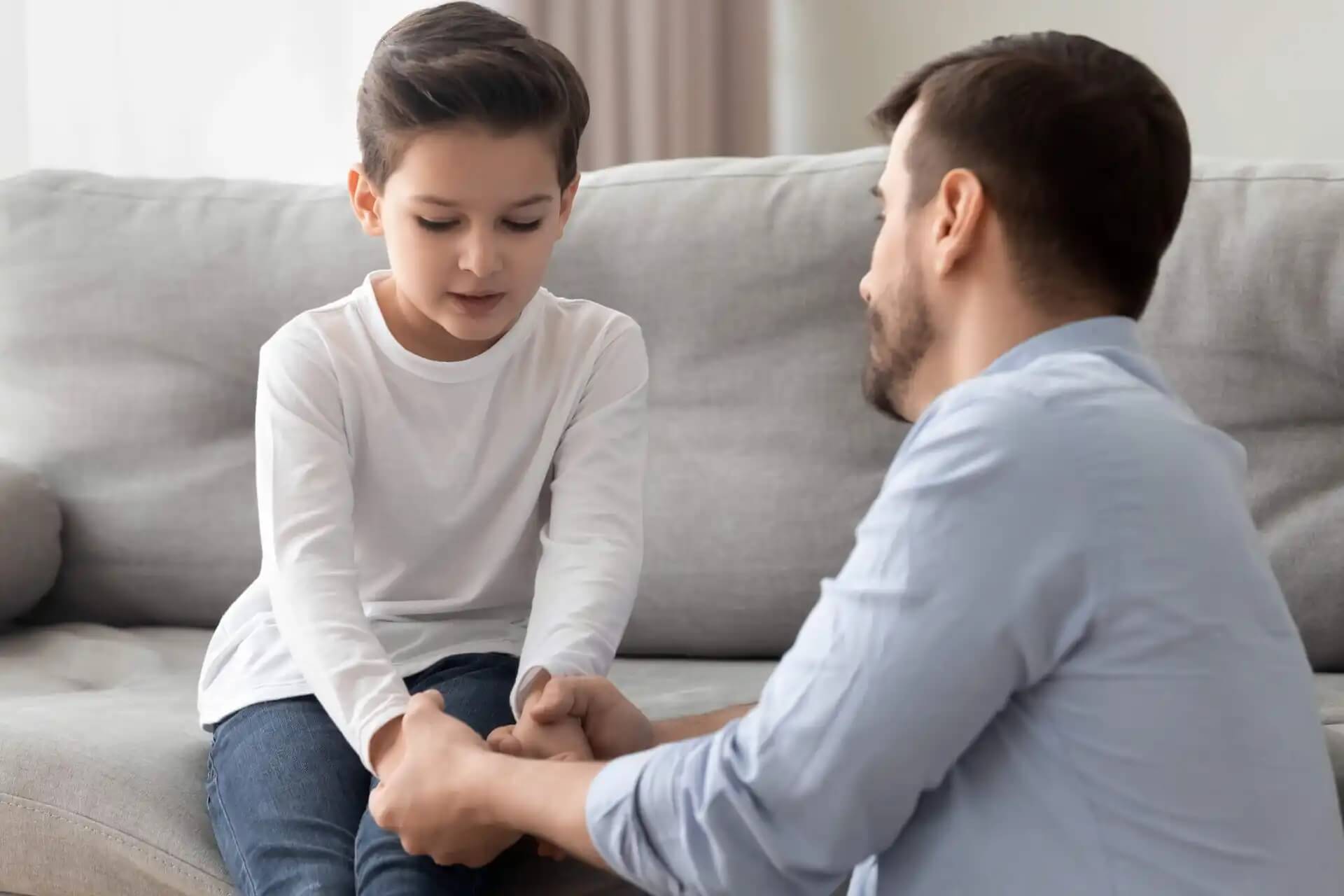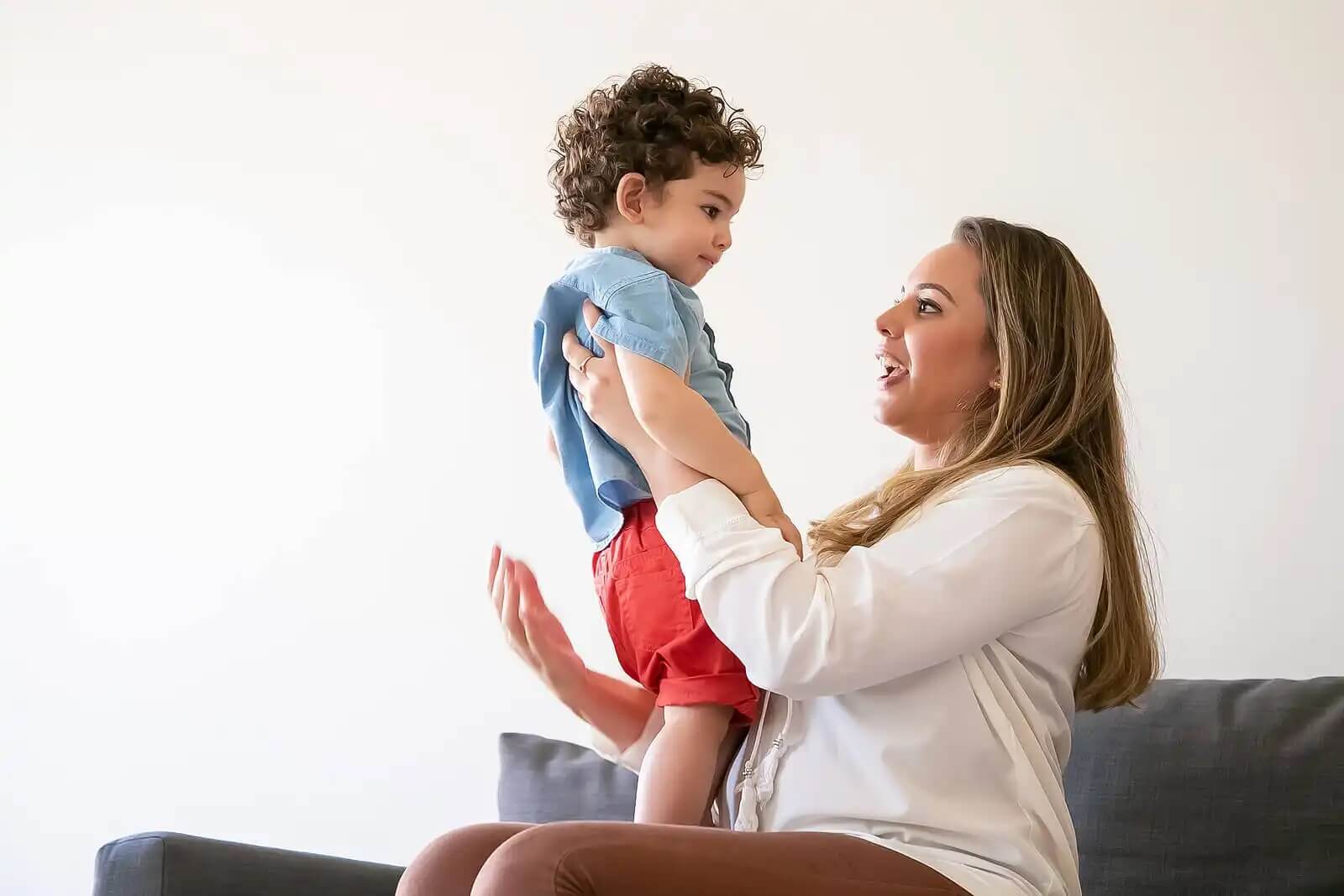Empathic Listening: Why Is it so Important?


Written and verified by the psychologist Mara Amor López
Empathic listening helps us to relate to those around us more healthily and effectively. It helps us to deal with the people closest to us and also to realize our mistakes in the way we relate to other people in society. As a result, we start to rethink our points of view and improve as people.
We all know that hearing isn’t the same as listening. So, when we relate to other people, we have to understand what they’re saying to us. In order to communicate successfully, we need to see what the other person’s needs and perspectives are. So why is empathic listening so important? Let’s take a look at the topic…
What do we mean by empathic listening?
As the name suggests, we need good social skills and empathy in order to be able to relate to others. Thanks to empathic listening we can understand how the people we relate to are feeling and what emotions they’re experiencing. In turn, we can adapt the way we relate to them.

Being empathetic towards other people isn’t only about understanding how other people feel, but also about adopting a positive attitude towards what we perceive in others. By doing so, we can look for aspects in them that complement our own personality and character.
So, when we talk about empathic listening, we’re referring to the ability to understand and actively attend to other people, taking into account their emotions, feelings, body language, non-verbal communication, etc. This quality helps us to put ourselves in the other person’s shoes and to understand their fears, anger, frustrations, needs, sufferings, and motivation.
We’d go as far as saying that empathic listening is one of the most important and necessary social skills that can help us to relate to others in a healthy way, establishing positive connections and communication.
Empathic listening helps us to improve as people
Relating to others with empathy has a positive effect on our lives, as it helps to bring out the best in us, and for us to be better people. Empathic listening has an important role to play in helping us to put ourselves in other people’s shoes, and to understand why changes occur in the relationships we have with the people around us (work colleagues, friends, family, etc.).
Some of the benefits of its application in our lives are that it:
- Nurtures and stimulates our personal development.
- Helps us to understand how context can influence people’s emotions.
- Enriches our way of looking at life, as it gives us other points of view.
- Helps us to look for the things we have in common with others.
Empathic listening helps us to adapt successfully to the demands of everyday life in order to improve at all levels.
How does it help us to question our ideas?
Empathic listening doesn’t only help us on a personal and social level, but it also helps us to question some of our beliefs and ideas and to reflect on the way we see the world. It allows us to put ourselves in the other person’s place and to take into account other ways of thinking or solving problems and needs. We need to realize that there are other ways of seeing the world too!
With empathic listening, we can enrich our way of looking at life, and our vision of reality. It gives us the opportunity to correct our mistakes and to anticipate the reactions that other people may have in certain situations.

In addition to all of this, it also gives us the possibility to change our preconceived ideas and prejudices about other people. Ideas that we’ve assumed without really having any idea how other people feel or think.
So, what conclusions can we reach about empathic listening?
You’ve already seen how important the skill of empathic listening is in order to improve the way we relate to other people, both personally and professionally. In addition to this, it helps us to optimize our own personal development and how we learn about the world.
Taking empathic listening into account in our daily lives will provide us with enormous benefits. It’ll help us become better people, and to understand the reasons behind certain behaviors that other people may have.
This skill is key in order to avoid the preconceived ideas we have towards other people or the prejudices that can lead us to relate to others inappropriately, quite simply because we don’t try to put ourselves in their shoes.
Empathic listening helps us to relate to those around us more healthily and effectively. It helps us to deal with the people closest to us and also to realize our mistakes in the way we relate to other people in society. As a result, we start to rethink our points of view and improve as people.
We all know that hearing isn’t the same as listening. So, when we relate to other people, we have to understand what they’re saying to us. In order to communicate successfully, we need to see what the other person’s needs and perspectives are. So why is empathic listening so important? Let’s take a look at the topic…
What do we mean by empathic listening?
As the name suggests, we need good social skills and empathy in order to be able to relate to others. Thanks to empathic listening we can understand how the people we relate to are feeling and what emotions they’re experiencing. In turn, we can adapt the way we relate to them.

Being empathetic towards other people isn’t only about understanding how other people feel, but also about adopting a positive attitude towards what we perceive in others. By doing so, we can look for aspects in them that complement our own personality and character.
So, when we talk about empathic listening, we’re referring to the ability to understand and actively attend to other people, taking into account their emotions, feelings, body language, non-verbal communication, etc. This quality helps us to put ourselves in the other person’s shoes and to understand their fears, anger, frustrations, needs, sufferings, and motivation.
We’d go as far as saying that empathic listening is one of the most important and necessary social skills that can help us to relate to others in a healthy way, establishing positive connections and communication.
Empathic listening helps us to improve as people
Relating to others with empathy has a positive effect on our lives, as it helps to bring out the best in us, and for us to be better people. Empathic listening has an important role to play in helping us to put ourselves in other people’s shoes, and to understand why changes occur in the relationships we have with the people around us (work colleagues, friends, family, etc.).
Some of the benefits of its application in our lives are that it:
- Nurtures and stimulates our personal development.
- Helps us to understand how context can influence people’s emotions.
- Enriches our way of looking at life, as it gives us other points of view.
- Helps us to look for the things we have in common with others.
Empathic listening helps us to adapt successfully to the demands of everyday life in order to improve at all levels.
How does it help us to question our ideas?
Empathic listening doesn’t only help us on a personal and social level, but it also helps us to question some of our beliefs and ideas and to reflect on the way we see the world. It allows us to put ourselves in the other person’s place and to take into account other ways of thinking or solving problems and needs. We need to realize that there are other ways of seeing the world too!
With empathic listening, we can enrich our way of looking at life, and our vision of reality. It gives us the opportunity to correct our mistakes and to anticipate the reactions that other people may have in certain situations.

In addition to all of this, it also gives us the possibility to change our preconceived ideas and prejudices about other people. Ideas that we’ve assumed without really having any idea how other people feel or think.
So, what conclusions can we reach about empathic listening?
You’ve already seen how important the skill of empathic listening is in order to improve the way we relate to other people, both personally and professionally. In addition to this, it helps us to optimize our own personal development and how we learn about the world.
Taking empathic listening into account in our daily lives will provide us with enormous benefits. It’ll help us become better people, and to understand the reasons behind certain behaviors that other people may have.
This skill is key in order to avoid the preconceived ideas we have towards other people or the prejudices that can lead us to relate to others inappropriately, quite simply because we don’t try to put ourselves in their shoes.
All cited sources were thoroughly reviewed by our team to ensure their quality, reliability, currency, and validity. The bibliography of this article was considered reliable and of academic or scientific accuracy.
- Naranjo, M. G. M. (2018). Escucha activa y empática. Editorial Elearning, SL.
- Caballo, V. (1983). Manual de entrenamiento y evaluación de las habilidades sociales. Madrid: Siglo XXI.
- Gómez, F. G. (2007). Comunicación y escucha empática de Carl Rogers. In Intervención social con familias (pp. 141-162).
This text is provided for informational purposes only and does not replace consultation with a professional. If in doubt, consult your specialist.








